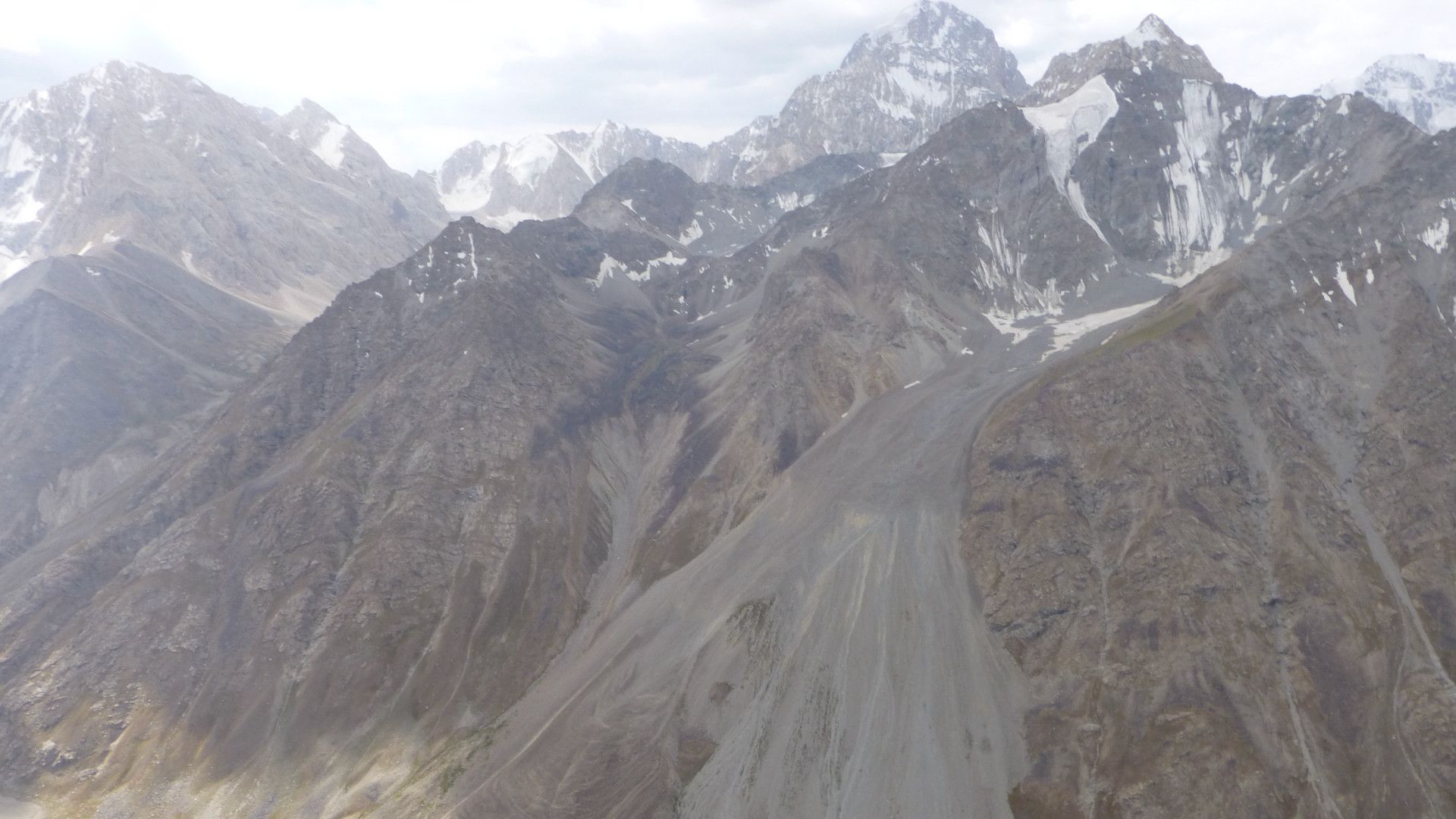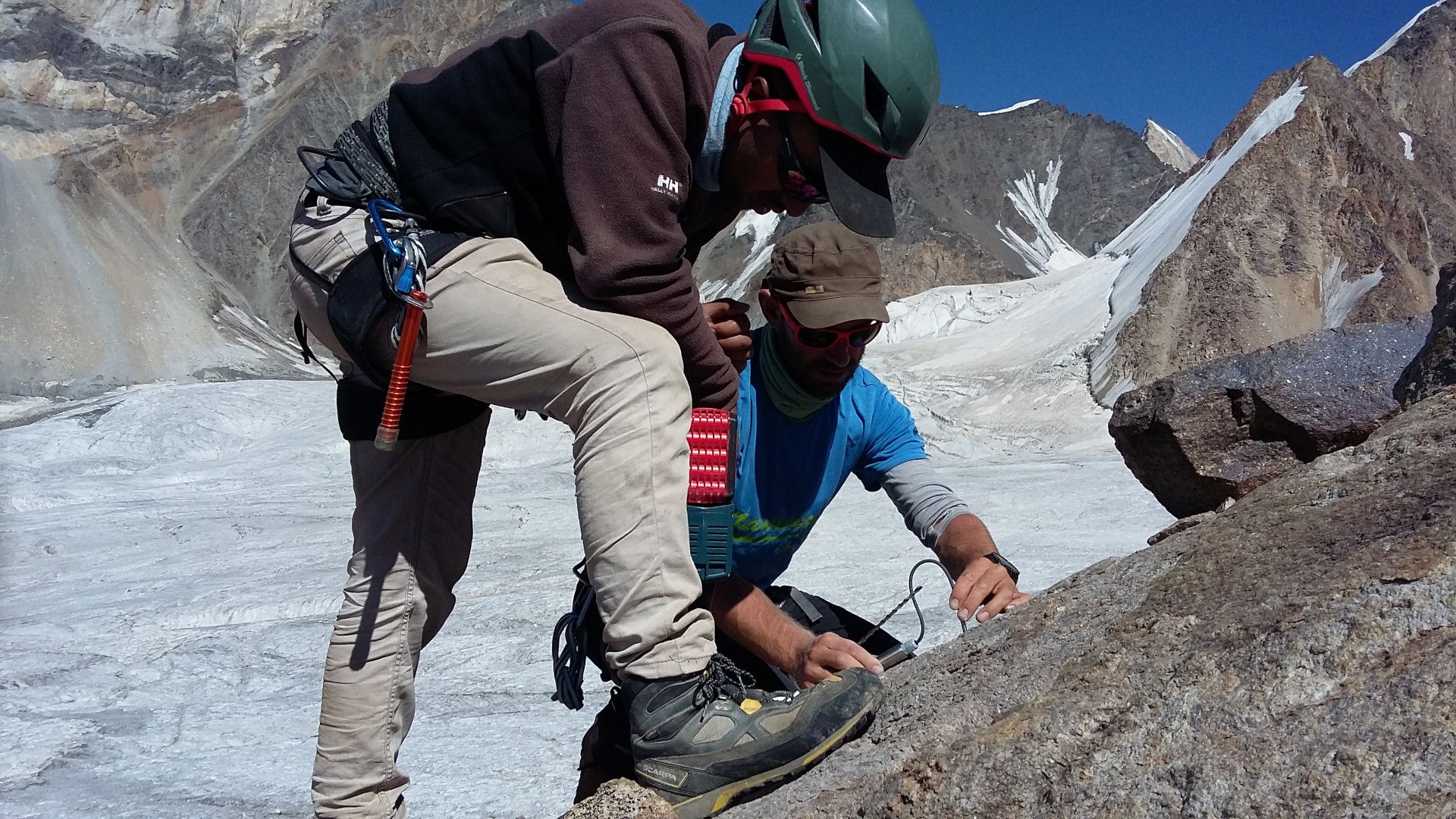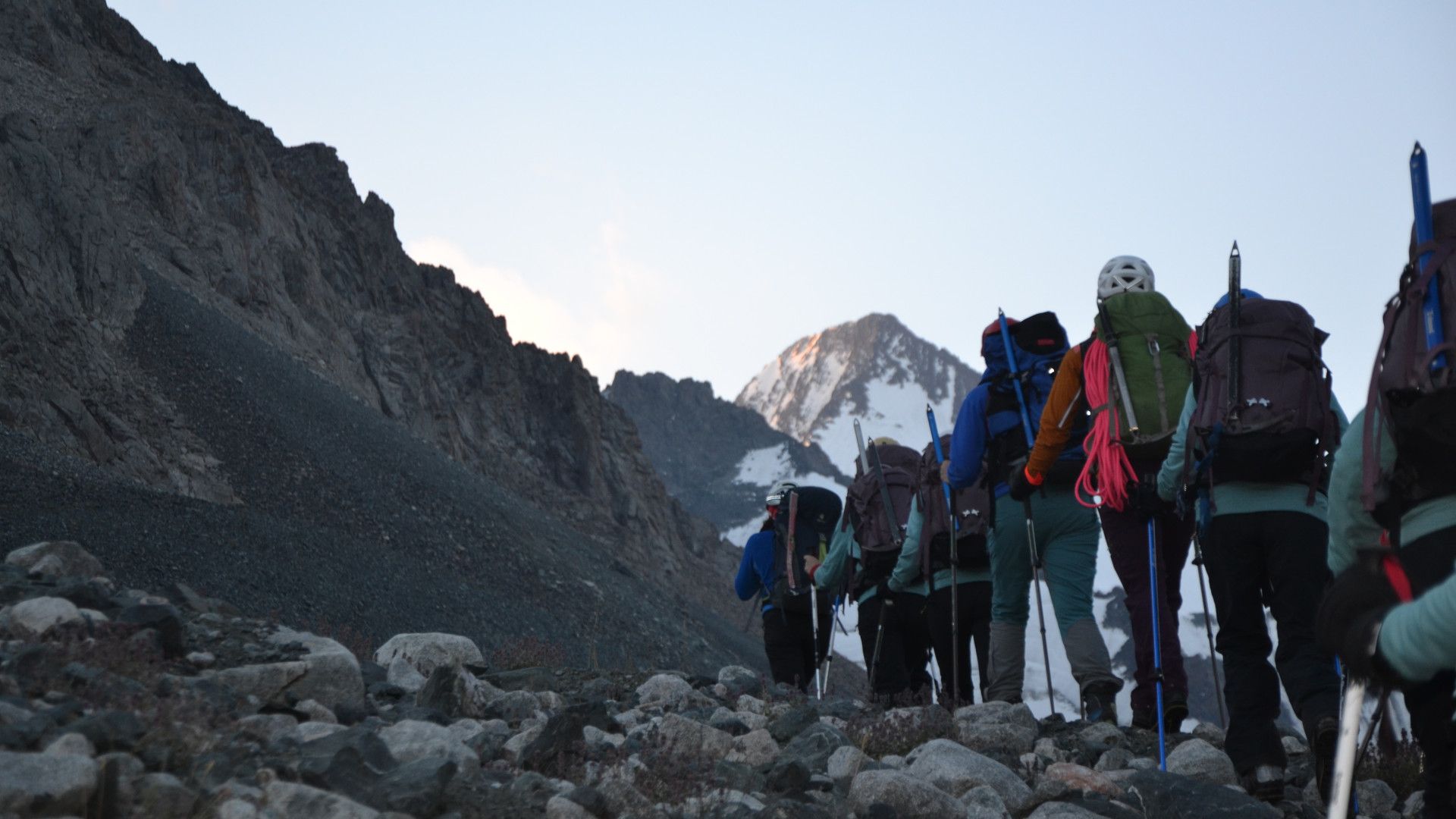Observing snow and ice to strengthen climate resilience in Central Asia's mountain regions
Mountain regions, which are home to one fifth of the world's population and the source of fresh water for half of all humanity, are particularly vulnerable to climate change. In Central Asia, the melting of snow and glaciers and the degradation of permafrost increase the risk of natural disasters and water scarcity. The SDC is supporting the region through projects such as CROMO-ADAPT to better understand the phenomena at work and to adapt to them.
The mountains of Central Asia extend across Kazakhstan, Kyrgyzstan, Tajikistan, Turkmenistan and Uzbekistan. In this region, nearly 90% of the population relies on water from the mountains. Climate change, which is causing glaciers to melt and affecting snow reserves, has a significant impact on the availability of water and the occurrence of natural hazards. These phenomena often threaten entire mountain regions, putting the livelihoods of large numbers of people at risk.
To tackle the various challenges posed by climate change in mountain regions, observation data on these remote areas is essential so that monitoring and adaptation systems for water resource management and disaster risk reduction can be improved. Switzerland has extensive experience of the challenges related to sustainable development of alpine regions, but also of the keys to unlock their potential. It promotes knowledge building, dialogue, and the exchange of information and experience between the various actors at all levels. A good example of this is the programme ‹Cryospheric Observation and Modelling for improved Adaptation in Central Asia (CROMO-ADAPT)›, run by the University of Fribourg and the WSL’s Institute for Snow and Avalanche Research (SLF).
Robust scientific data to be better prepared for the future
Water from snow and glacier melting is essential to maintain river flow during dry summers. However, the shrinkage of glaciers and the melting of permafrost increase the risk of natural disasters. Reducing these risks is a priority in mountain regions. The climate observation system in Central Asia currently has some shortcomings, and local scientists and policymakers are lacking the crucial data needed to better manage water resources and reduce disaster risk. This has a direct impact on local populations, for example farmers, who need to prepare for periods of drought and choose seeds adapted to future climatic conditions. Since 2011, the SDC has been working in the region to enhance the available scientific data.
«As part of CROMO-ADAPT, we collect data on the ground in Central Asia to build scientific models. These models then help local decision-makers better plan and prepare for climate challenges,» explains Martin Hoelzle, head of the CROMO-ADAPT project at the University of Fribourg.
Thanks to this project, the local scientific community is able to access reliable and robust data through a high-quality, publicly accessible database. The database includes the essential climate variables, in other words the key parameters used to monitor and understand changes in climate, such as air temperature, precipitation, and evolution of permafrost. They are measured using various instruments and methods, often combining field observations with satellite data. These crucial variables allow scientists to predict long-term climate changes, lawmakers to develop policies, and local communities to put in place adaptation strategies.
The project also seeks to train the researchers of tomorrow and to build the expertise of the science community on these key issues. As Joel Fiddes, CROMO-ADAPT researcher at the SLF, explains: «Capacity building for young researchers and the next generation is a key element of sustainability. They are the ones who will continue this work if they are well prepared and empowered to do so. What's more, infrastructure, including equipment, is another essential aspect in making sure this project can continue in the long term.»
A local project with global stakes
While CROMO-ADAPT aims to build capacity in Central Asia's mountain regions, it also acts at a global level by supplying valuable data to the Intergovernmental Panel on Climate Change (IPCC) of the World Meteorological Organization. The IPCC's principal mission is to provide regular scientific assessments on climate change, its causes and impacts, and options for mitigation and adaptation. These assessments are a key input into the international negotiations to tackle climate change.
Bolot Moldobekov, co-director of the Central Asian Institute for Applied Geosciences in Kyrgyzstan who is involved in the project, says: «Although CROMO-ADAPT is focused on the Central Asia region, it also tackles global climate challenges because climate change has always and will always be a global phenomenon, with certain distinctive characteristics depending on the geographical region. Consequently, the outcomes and results obtained by the CROMO-ADAPT project will be useful at a global level to address and tackle similar problems to those in our region.»
Recent torrential rainfall caused landslides and devastating floods in the alpine cantons of Ticino and Valais, cutting off whole valleys and resulting in considerable damage to critical infrastructure. Tragically, these disasters have also cost lives. Such events remind us of how crucial it is to continue monitoring and research efforts to better understand and adapt to changes in frozen environments in order to reduce the risks to ecosystems and communities.
The CROMO-ADAPT project illustrates the importance of generating robust scientific data in collaboration with various institutes to develop regional climate scenarios for the management of water resources and natural hazards. Through local capacity building and increased awareness of the impacts of climate change, these efforts will help make data collection systems more sustainable and strengthen climate resilience both regionally and globally.
Adventure of science: inspiring expeditions for the female researchers of tomorrow
CROMO-ADAPT is also involved in efforts to promote gender equality in science. In fact, the sustainability of this project also depends on the training of young female scientists. Glaciologists Martina Barandun and Marlene Kronenberg co-founded the programme ‹Adventure of Science: Women and Glaciers in Central Asia› which is part of the broader CROMO-ADAPT project, in 2019. Inspired by the energy of the young women they met in Central Asia, they set up a two-week training programme aimed at young women and girls in the region. This programme aims to increase participation and diversity in scientific field work, while empowering young women to lead and succeed through science, art and outdoor exploration.
As Martina Barandun explains: «This programme isn't designed to be a simple, short-term educational experience, but a long-term initiative with a view to sustainability. Its main objective is to motivate and inspire young women to pursue careers in this field, rather than just offering a short-term training course.» In this way it helps develop experts on the cryosphere, enhances the local scientific network, and increases the availability of data and evidence-based analyses.
Contact
Eichenweg 5
3003 Bern




